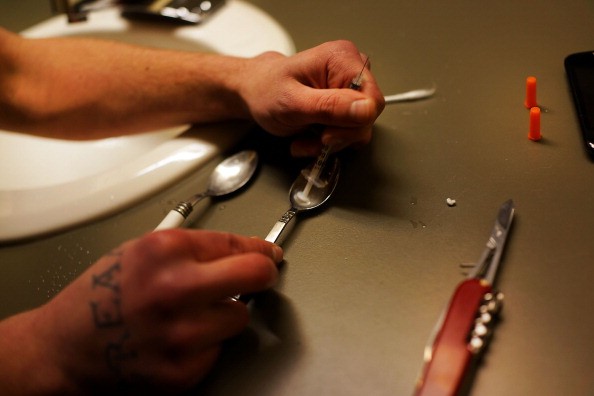
A hospital system in Kentucky treats up to 10 new confirmed cases of hepatitis C each day. The local health department is alerted to each new patient so that it can find out how these people contracted the virus and to keep them from spreading it. Many of these patients are discovering that their health insurance-if they have any-will not cover the estimated costs of $84,000 for a typical course of the drug Sovaldi, the most effective treatment.
The enormous spike in cases of hepatitis C in Appalachia and the Midwest is due to the widespread use of intravenous heroin and opioid drugs. Even treating a small portion of these infected people with Sovaldi, made by the pharmaceutical company Gilead, is breaking the budgets for state Medicaid programs and even private insurance companies.
Sovaldi, which is more effective than other drugs for hepatitis C, costs about $1,000 per pill. A second drug for hepatitis C from Gilead, Harvoni, is also highly effective, but costs even more: nearly $100,000 per course of treatment. Gilead offers a discount to Medicaid programs, which covers those in the lowest income brackets, but even at the discounted price, it is very expensive.
Other drug treatments for hepatitis C are available but are not as effective and have more serious side effects than Sovaldi and Harvoni.
Hepatitis C is a viral infection of the liver that can lead to scarring of the liver, impaired liver function, and liver failure that would require a liver transplant. It can also cause liver cancer.
About 16,000 people in Kentucky who are on Medicaid were diagnosed with hepatitis C in 2014. In Kentucky, Medicaid recipients are covered by private managed care plans. Most of these plans will not cover early stage hepatitis C; only covering later stages where the liver has started to scar. They may also deny coverage to anyone who has used intravenous drugs in the previous 6 months. However, quitting drug use is hard without a treatment program and there are not enough drug treatment programs in most of the country.
Many areas affected by the heroin and IV drug epidemic had laws against needle exchanges, centers where addicts could pick up clean needles. Many states are rethinking such regulations and allowing needles exchanges to open.

